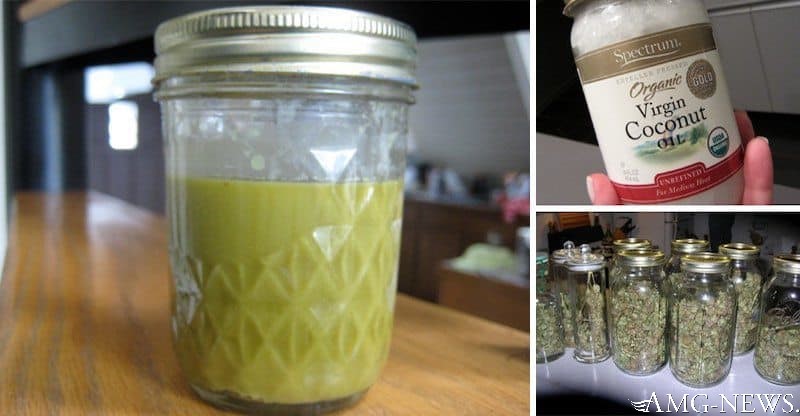Medeea Greere, an independent publisher, is now on Telegram at https://t.me/AMGNEWS2022 and exists only on reader support as we publish Truth, Freedom and Love for public awareness. Thank You for your support!
Frankincense is a powerful medicinal oil that can not only boost the immune system but also kill cancer cells, a number of studies have shown.
Frankincense oil is a natural remedy that comes from the resin of a tree. People have used it in traditional medicine for centuries, and some say that it can offer numerous health benefits, including cancer treatment.
Frankincense kills cancer and reduces radiation side effects.
Frankincense comes from the Boswellia tree. It has a long history in myth and folk medicine, especially in India and African countries.
In the Bible, it is one of three gifts that the wise men offered to Jesus, possibly because of its apparent healing powers.

Substances that occur in frankincense have a number of possible health benefits.
These include controlling bleeding, speeding up the wound-healing process, improving oral health, fighting inflammatory conditions such as arthritis, and improving uterine health.
Studies have suggested that certain substances in frankincense may be useful as a cancer treatment. Current research is limited, but early results appear promising.
Frankincense and cancer
Here we will look at some of the reasons why frankincense might help to treat cancer.
Frankincense and inflammation
Frankincense contains boswellic acid, which may help fight inflammation.
Inflammation causes redness, swelling, and heat. It happens after an injury and during many illnesses.
The body uses inflammation to fight infection. When inflammation occurs, the body produces white blood cells as part of its defense mechanism. Inflammation also causes swelling, redness, and pain.
Long-term inflammation, especially when it occurs in multiple areas of the body, is associated with a wide range of health issues, such as arthritis.
In 2006, a study published in Planta Medica showed a number of ways the boswellic acid in frankincense might fight inflammation.
The authors noted that Boswellic acid inhibits 5-lipoxygenase, and it might also target free radicals and cytokines. All of these play a role in inflammation.
The role of frankincense in reducing inflammation could have important implications for cancer treatment. A number of studiesTrusted Source have linked inflammation to cancer.
Frankincense and cancer cells
Frankincense might not just reduce inflammation. It may also attack cancer cells directly.
This, say some researchersTrusted Source, could benefit people with leukemia and other types of cancer.
One of the challenges of cancer treatment is that, unlike bacteria or viruses, cancer cells are not foreign invaders. Instead, cancer occurs when the body’s cells grow out of control, attacking healthy tissue.
This process makes it difficult to fight cancer without also killing healthy cells. In fact, most cancer treatments do kill healthy cells.
Chemotherapy, for example, kills many healthy cells as it fights cancer. This is why people often lose their hair, experience nausea, and become more vulnerable to infection during chemotherapy.
Some evidence suggests that frankincense might target cancer cells without harming healthy cells.
A laboratory studyTrusted Source of bladder cancer, published in 2009, looked at how frankincense affected cultures of normal and cancerous bladder cells. The oil targeted cancerous cells, but it did not destroy healthy cells.
In 2015, further lab research found similar effects in breast cancer. The investigators found that frankincense could kill breast cancer cells and disrupt the growth of future cancer cells.
In 2016, scientists describing the properties of frankincense noted that it contains substances that have anti-tumor properties. These could prevent cancer cells from growing and lead to controlled cell death, or apoptosis.
These are early results, but they offer hope that substances that occur in frankincense might one day fight some forms of cancer without the potentially life-threatening effects of chemotherapy.
► TRENDING: Medieval Lessons – The Most Powerful Natural Painkiller That Works Like Morphine That You Can Make at Home. Video Below:
A future treatment?
When we hear that a natural substance is useful for treating a disease, it often means that the substance, such as frankincense, contains compounds or chemicals that have therapeutic properties.
A person will not use whole frankincense, for example, to cure a disease, but scientists may find a substance within frankincense that they can turn into a medication or therapy.
In addition, scientists have only looked at compounds in frankincense as a cancer treatment in laboratory studies. They do not know how it might affect cancer in a living human being.
Before using a frankincense-based product to treat cancer, researchers must perform human trials to prove that it works and that it is safe.
Human bodies are complicated systems, and natural products such as whole frankincense are also complex.
Any drug or substance that can solve one problem may have other, unwanted effects on the body.
Before giving people frankincense or its derivatives, scientists must work out a safe dosage, explore potential side effects, and decide how best to deliver treatment.
Research is still in its early stages. Frankincense is unlikely to form the basis of a mainstream cancer treatment in the near future.
Viral Content: What Is The Secret To A Long Healthy Life? This Secret Ancient Japanese Tonic Recipe Will Help You Melts 54 LBS Of Fat
Safety issues
Frankincense is available as an extract and an essential oil, but people should talk to a doctor before trying it as a treatment for cancer or any other health condition.
Frankincense is not an alternative to mainstream cancer treatments, and it cannot replace standard treatment.
No research currently supports using the oil in place of other cancer treatments. People may, however, use it as a supplement to medical treatment.
The United States Food and Drug Administration have not approved frankincense as a drug for any specific disease. There are no scientifically proven guidelines for its use, and there is no official control over what a product contains when people purchase it.
Frankincense essential oil
People use essential oils in aromatherapy. This means they inhale the aroma of the oil, usually with a diffuser.
People should never swallow an essential oil, and they should always dilute it with a carrier, for example almond oil, before applying it to the skin.
Essential oil manufacturers suggest a range of ways to use frankincense.
Topical application
These include:
- Skin care: Add a drop or two to a favorite lotion.
- Bath soak: A few drops in a bath tub create an aromatic soak, and the body may absorb some of the oil. Mix the oil first with some full-fat milk so that it does not separate and stay on the surface of the water.
- Relaxation: Use frankincense on pulse points during meditation or yoga, or apply a few drops of oil to a hot compress.
► Educate-Yourself: Home Doctor – You Should Put Garlic in Your Ear Before Going to Sleep. Watch the video below:
Frankincense extract
Nobody should ever ingest an essential oil, but people can swallow frankincense extract.
It is important to follow the manufacturer’s guidelines on dosage. Interactions with other drugs or side effects are much more common when the extract is taken by mouth.
Users should watch carefully for side effects, and they should stop use immediately if any ill effects develop.
Frankincense is natural, but like many other natural substances, it can be poisonous.
Some people who have used frankincense extract have experienced:
- stomach pain
- nausea
- diarrhea
It remains unclear how it might interact with other medications.
People who are pregnant, lactating, have a history of allergic reactions, or have a weakened immune system, should avoid using frankincense extract or essential oils unless their doctor says otherwise.
Other possible uses
At least one trial has looked into the use of frankincense for medical purposes.
The National Center for Complementary and Integrative Health (NCCIH)Trusted Source note that in a 2011 study of people with osteoarthritis, those who used an extract that came from Boswellia serrata gum resin, a frankincense resin, had better pain relief than those who used a placebo.
Other diseases it may help with include:
- rheumatoid arthritis
- Crohn’s disease
- bronchial asthma
- ulcerative colitis
Authors of a study published in 2016 suggested that, apart from fighting inflammation, it might have benefits that are “expectorant, antiseptic, and even anxiolytic and anti-neurotic.”
In 2017, other scientists concludedTrusted Source that it may contribute to wound healing.
However, anyone who is considering using frankincense for medical purposes should speak to a doctor first.










![THE BIDEN ILLUSION: TRUMP DROPS CLASSIFIED PROOF DEEP STATE USED ACTORS, CLONES, AND HOLOGRAMS TO FAKE A PRESIDENCY [VIDEO]](https://amg-news.com/wp-content/uploads/2025/06/TRUMP-DROPS-CLASSIFIED-PROOF-DEEP-STATE-USED-ACTORS-CLONES-AND-HOLOGRAMS-TO-FAKE-A-PRESIDENCY-450x262.png)



